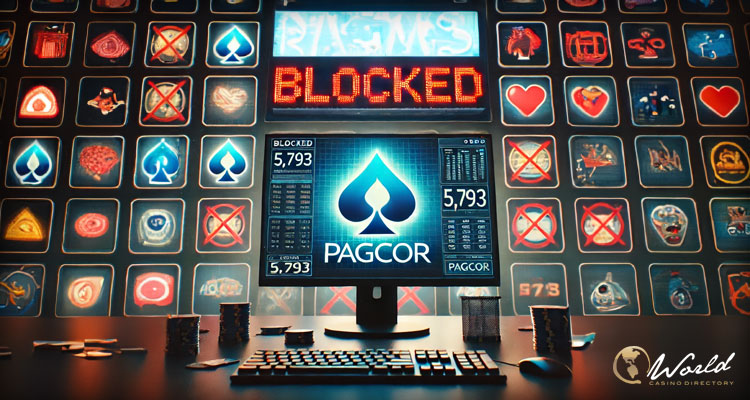The Philippine Amusement and Gaming Corporation (PAGCOR) has made significant strides in its ongoing campaign against illegal online gaming, successfully blocking 5,793 of the 7,747 sites detected, which accounts for approximately 74.78% of the total identified. This was announced by Ret. Gen. Raul Villanueva, Senior Vice President of PAGCOR’s Security Monitoring Cluster, during a public hearing on the Anti-Online Gambling Act held by the Senate committee on ways and means.
The illegal sites include a variety of online gambling formats such as e-sabong, offshore sites, and other unauthorized online games promoted through Facebook ads, mobile applications, and spam messages. Despite the progress, about 1,954 sites remain active, presenting ongoing challenges for the regulator, according to the Inquirer.
Villanueva outlined the primary strategies used by PAGCOR to curb illegal online activities, which include website and URL blocking, as well as payment blocking. However, he highlighted the complexities of payment blocking, especially when offenders use cryptocurrencies or operate through complex offshore banking systems. To address this, PAGCOR has engaged with local payment portals like GCash and Maya, which have pledged to help purge these illegal activities.
In addition to direct blocking efforts, PAGCOR has reached out to major platforms like Google Play and Apple Play Store, requesting assistance in removing illegal applications, particularly those related to e-sabong, from their services. These efforts have seen a reduction in Facebook ads promoting illegal gambling, though there has been a noted shift towards other platforms like Telegram, where illegal operators continue to promote their activities.
Push For Stronger Regulation
The crackdown on illegal sites comes as PAGCOR continues to push for stronger regulation of online gaming within the Philippines. PAGCOR chair Alejandro Tengco emphasized the importance of regulation, citing estimates that the gray market for online gaming could be worth P200 to P250 billion. Without regulation, these funds would continue to evade government oversight and taxation, benefiting only the operators at the expense of public welfare.
“Our estimate is around P200 to P250 billion, and if we don’t regulate it, where will it go but only in the pockets of those who run these operations? The government does not benefit from that even one cent,” said Tengco according to Inquirer. Senator Sherwin Gatchalian also weighed in, noting the addictive nature of unregulated online gaming and its potential to involve even law enforcement personnel, complicating efforts to enforce regulations.
In light of these challenges, the ongoing Senate hearings on the Anti-Online Gambling Act are critical as they shape the legislative framework that will govern the future of online gaming in the Philippines. This includes refining the approaches to preventing addiction and ensuring that the industry operates transparently and benefits the broader economy.



